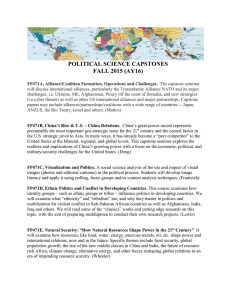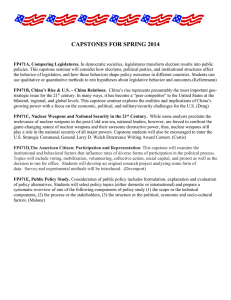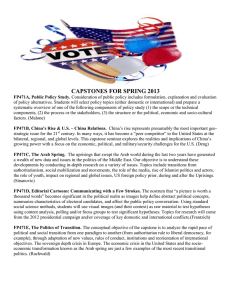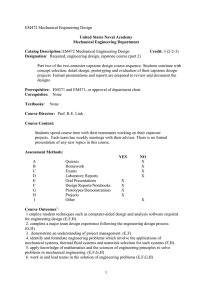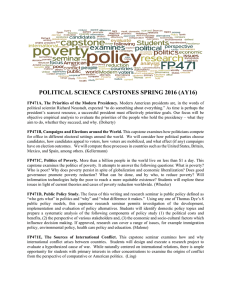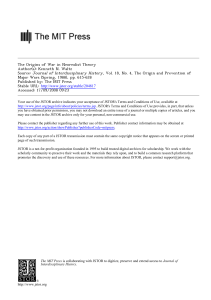Capstone Seminars Spring 2015
advertisement
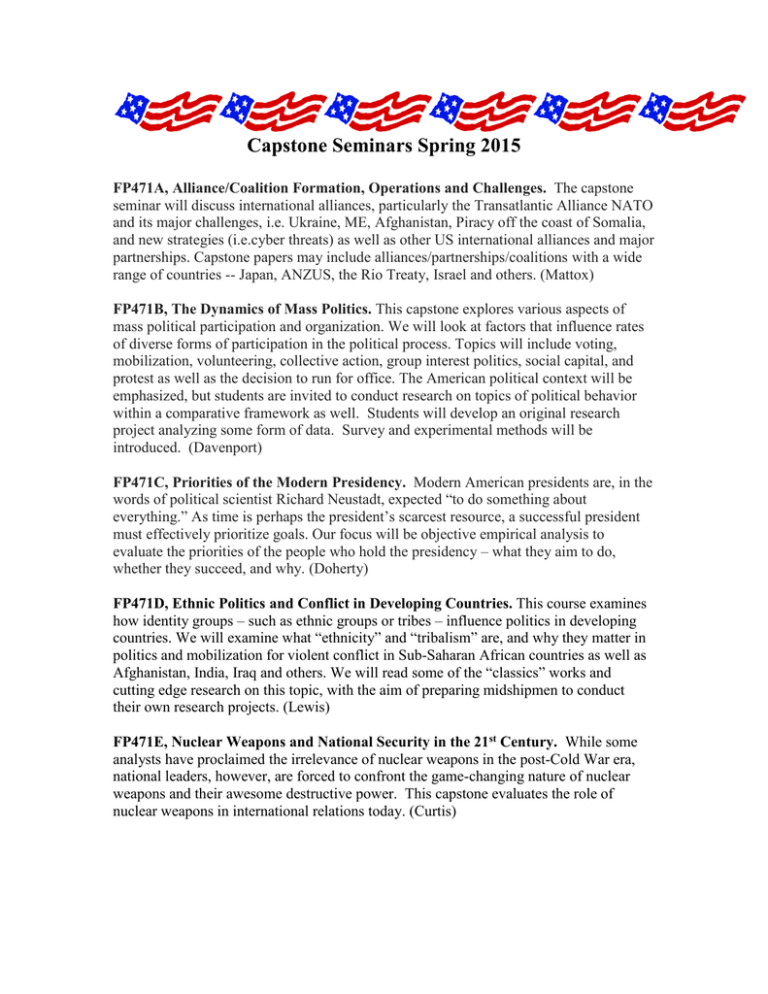
Capstone Seminars Spring 2015 FP471A, Alliance/Coalition Formation, Operations and Challenges. The capstone seminar will discuss international alliances, particularly the Transatlantic Alliance NATO and its major challenges, i.e. Ukraine, ME, Afghanistan, Piracy off the coast of Somalia, and new strategies (i.e.cyber threats) as well as other US international alliances and major partnerships. Capstone papers may include alliances/partnerships/coalitions with a wide range of countries -- Japan, ANZUS, the Rio Treaty, Israel and others. (Mattox) FP471B, The Dynamics of Mass Politics. This capstone explores various aspects of mass political participation and organization. We will look at factors that influence rates of diverse forms of participation in the political process. Topics will include voting, mobilization, volunteering, collective action, group interest politics, social capital, and protest as well as the decision to run for office. The American political context will be emphasized, but students are invited to conduct research on topics of political behavior within a comparative framework as well. Students will develop an original research project analyzing some form of data. Survey and experimental methods will be introduced. (Davenport) FP471C, Priorities of the Modern Presidency. Modern American presidents are, in the words of political scientist Richard Neustadt, expected “to do something about everything.” As time is perhaps the president’s scarcest resource, a successful president must effectively prioritize goals. Our focus will be objective empirical analysis to evaluate the priorities of the people who hold the presidency – what they aim to do, whether they succeed, and why. (Doherty) FP471D, Ethnic Politics and Conflict in Developing Countries. This course examines how identity groups – such as ethnic groups or tribes – influence politics in developing countries. We will examine what “ethnicity” and “tribalism” are, and why they matter in politics and mobilization for violent conflict in Sub-Saharan African countries as well as Afghanistan, India, Iraq and others. We will read some of the “classics” works and cutting edge research on this topic, with the aim of preparing midshipmen to conduct their own research projects. (Lewis) FP471E, Nuclear Weapons and National Security in the 21st Century. While some analysts have proclaimed the irrelevance of nuclear weapons in the post-Cold War era, national leaders, however, are forced to confront the game-changing nature of nuclear weapons and their awesome destructive power. This capstone evaluates the role of nuclear weapons in international relations today. (Curtis)
